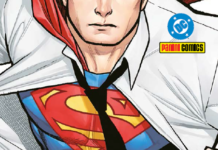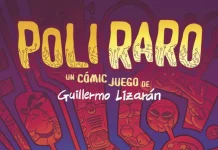En la Checoslovaquia de los 80 tenemos un grupo de alumnos que comienzan un nuevo curso con las típicas preguntas de clase: ¿Cómo te llamas? ¿A qué se dedican tus padres? Sin embargo, la profesora, Maria Drazdechova, tiene otros planes para sus alumnos. Mientras tanto, los padres de estos se reúnen paralelos a la historia, para quejarse de una profesora. Se trata de Drazdechova, quien obliga a sus padres a realizarle favores y a los niños a ir a limpiarle la casa para poder aprobar el curso.
La película discurre por dos vías, la primera con la historia de Drazdechova y los flashbacks a las acciones que determinan el verdadero conflicto del filme. Los padres se reúnen para intentar echar a la profesora, que además es miembro del Partido Comunista Checoslovaco en una alta posición. Y, como en todo, habrá gente a favor y en contra, gente que defienda el comportamiento de Drazdechova como algo que se permitió y que ofrece beneficios a ambas partes y los que están totalmente en contra, los padres que no pueden hacer favores o no quieren.
Jan Hrebejk, en dúo con su guionista de cabecera, Petr Jarchovský, compone una película que puede verse desde distintas órbitas. Por una parte, la historia de la profesora y los niños, pese al dramatismo de la situación, no deja de tener un tinte cómico por lo absurdo. Por otra, la guerra entre padres, un alter ego del bien y el mal, inmiscuye al espectador en una lectura mucho más profunda de las risas enlatadas del público.
Es ahí donde reside la calidad del guion, ¿de qué parte? Evidentemente, Drazdechova es un personaje bastante despreciable y el uso de la cámara y la fotografía lo deja bien en evidencia, por si a alguien no le había quedado muy claro, pero las posturas entre los padres pueden ser entendibles desde ambos puntos de vista.
Lo que veo menos intenso y que el director se apura a comentar en todas las entrevistas es la caracterización política de la profesora, puesto que es un dato que, queda constatado claramente al final, es irrelevante para las prácticas que pone en práctica. Que sea o no del Partido Comunista, más que para ambientar o para exponer la ideología del propio director, es un dato obviable.
Una buena película, entretenida, que hace pensar y correctísimamente llevada.
Učitelka, Jan Hrebejk (Eslovaquia). Official Section. FICX (English)
Zuzana Mauréri won the Best Actress Award at the Karlovy Vary International Film Festival 2016.
In the early Czechoslovakian 80’s, we meet a group of students who start a new school year with the typical class questions: What’s your name? Where do your parents work in? However, the teacher, Maria Drazdechova, has other plans for her students. Meanwhile, at the same time this is happening, all the parents have gathered in a meeting to complain about a teacher. This teacher is Drazdechova, who forces the parents to do her favours and makes the children go to her home for housecleaning in order to pass the course.
The film runs on two sides, the first one with the story of Drazdechova and the flashbacks to the actions that determine the true conflict of the film. The parents meet to try to get the teacher, who is also a member of the Cechoslovak Communist Party in a high position, fired. And, as always, there will be people that support their side and people defending the behaviour of Drazdechova as something that was allowed and offers benefits to both parties. In the other hand, parents who can’t or won’t do those favours, are totally against them.
Jan Hrebejk, in duet with his main scriptwriter, Peter Jarchovský, composes a film that can be seen from different orbits. On the one hand, the story of the teacher and the children, despite the drama of the situation, has a comical note due to all the nonsense. On the other hand, the war between parents, an alter ego of good and evil, gets the watchers to involve themselves in a much deeper reading.
That’s where the quality of the script resides. What side do you choose? Obviously, Drazdechova is a rather despicable character and the use of camera and photography makes that very clear, in case someone doesn’t understand the message implied. But the positions between parents can be understood from both points of view.
What I see less intense, and the director is quick to comment about in all his interviews, is the political characterization of the teacher, since, as it’s clearly stated in the end, it’s irrelevant to the practices that she executes throughout the movie. It doesn’t matter if she’s in the Communist Party or not: it’s a pointless fact beyond serving for setting the timeframe or the political views of the filmmaker himself.
A good movie, entertaining, that makes you think and is carried on.























